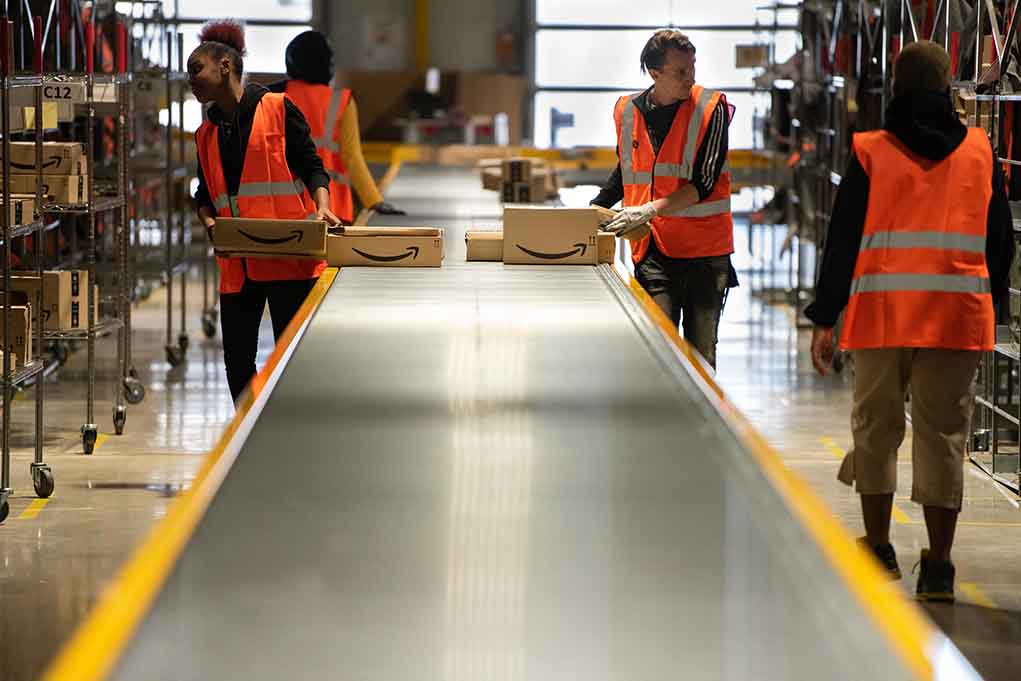
Amazon’s consideration of displaying tariff costs has sparked a fervent national debate on transparency and consumer trust.
Key Takeaways
- Amazon considered displaying the cost of tariffs on certain products, but later denied plans to implement this.
- President Donald Trump called Amazon founder Jeff Bezos after reports of Amazon’s potential plan to show tariff costs.
- The White House viewed Amazon’s consideration of displaying tariff costs as a “hostile and political act.”
- Amazon clarified that the idea was only considered for its Haul store, not the main site, and was never approved.
- Other e-commerce sites like Shein and Temu have adjusted pricing due to tariffs, with Temu displaying import charges at checkout.
Amazon’s Tariff Transparency Initiative: A Controversial Stance
Amazon’s exploratory move to make tariff hikes evident to its consumers has drawn significant attention and criticism, notably from figures like Karoline Leavitt. Concerns center around whether this transparency could inadvertently direct blame towards Amazon for rising costs, overshadowing the root causes of tariff impacts. The White House has harshly criticized these considerations, labeling them a “hostile and political act.” White House Press Secretary Karoline Leavitt followed up, asking, “Why didn’t Amazon do this when the Biden administration hiked inflation to the highest level in 40 years?”
Despite the uproar, Amazon has clarified that while the idea was considered for its Haul store, it was never approved and won’t be implemented. However, this discussion raises pertinent questions about consumer information and accountability amidst ongoing tariff disputes. While some view transparency as beneficial, others fear it might damage Amazon’s reputation for convenience and affordability.
Political Reactions and Economic Implications
The debate has also reached political spheres, with President Donald Trump reportedly expressing anger toward Jeff Bezos over the potential plan. This reaction highlights the complex relationship between Bezos and the Trump administration, with Trump’s past policies significantly affecting Amazon through increased costs attributed to tariffs.
Further complicating matters is the significant impact of tariffs on Amazon’s business operations, which affected nearly 1,000 products and led to a stock drop. Other online retailers, like Temu, have taken steps to make these costs visible, displaying import charges during checkout. This puts Amazon’s deliberations into perspective as the global market grapples with these complexities.
Industry Adjustments and Future Prospects
As companies navigate these turbulent waters, discussions on transparency and consumer trust are likely to continue. Senate Minority Leader Chuck Schumer has advocated for more companies to follow similar transparency initiatives, stating, “People deserve to know the impact tariffs have on their finances.”
Ultimately, the issue underscores the intersection of business operations, economic policy, and international trade dynamics. Amazon’s situation reflects a broader challenge: how businesses can balance transparency with the risk of consumer backlash while fostering consumer trust and maintaining accountability in a volatile global market.
Amazon's plan to show the extra cost of goods due to tariffs is a "hostile act," Trump's spokeswoman said. Amazon shares in response: pic.twitter.com/9tN4Fjelpm
— Lisa Abramowicz (@lisaabramowicz1) April 29, 2025
Sources:
- Trump called Jeff Bezos after learning Amazon considered breaking out a tariff charge
- Furious Trump calls Jeff Bezos over ‘politically hostile’ Amazon plan to advertise tariff surcharge on goods
- Amazon denies tariff pricing plan after White House calls it “hostile and political”
- Amazon Reportedly Floats Plan To Show Tariff Price Increases To Shoppers — Karoline Leavitt Calls It ‘Hostile’ Move | The Daily Caller

